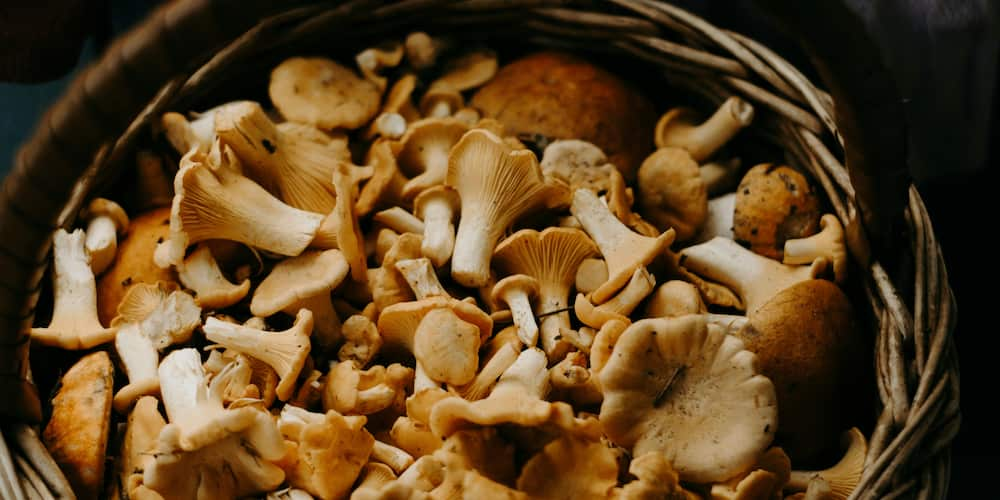Mastering mushroom boiling: a comprehensive guide for perfect results

Mushrooms are a versatile and nutritious ingredient suitable for cooks of all skill levels. Their rich umami flavor enhances various dishes, and they can be prepared through methods like sautéing, grilling, roasting, or simmering in sauces. Low in calories and high in essential nutrients such as B vitamins, potassium, and antioxidants, mushrooms are an excellent addition to a balanced diet. They are naturally gluten-free, low in fat, and fit well into vegetarian and vegan diets, making them an ideal choice for anyone looking to diversify their meals and explore new flavors.
How long to cook mushrooms?
Cooking mushrooms to perfection requires attention to their type and size, as these factors influence the optimal cooking time. Overcooking can lead to a loss of flavor and texture, while undercooking may result in a tough, unpalatable dish. Below is a guide to the recommended cooking times for various mushroom varieties, using both boiling and sautéing methods:
| Mushroom Type | Boiling | Sautéing |
|---|---|---|
| Button (White) Mushrooms | 5–7 minutes | 5–7 minutes |
| Cremini (Baby Bella) Mushrooms | 5–7 minutes | 5–7 minutes |
| Portobello Mushrooms | 10–15 minutes | 4–5 minutes per side (grilling) |
| Shiitake Mushrooms | 7–10 minutes | 5–7 minutes |
| Oyster Mushrooms | 7–10 minutes | 3–5 minutes |
| Porcini Mushrooms | 10–15 minutes | 5–7 minutes |
| Morel Mushrooms | 10–15 minutes | 6–8 minutes |
| Chanterelle Mushrooms | 15–20 minutes | 5–7 minutes |
Essential tips for cooking mushrooms
Mastering the art of cooking mushrooms can significantly enhance their flavor and texture. Here are some expert tips to help you achieve the best results:
- Avoid overcrowding the pan: When sautéing mushrooms, ensure they are spread out in a single layer. Overcrowding causes them to steam rather than brown, leading to a less flavorful result. If necessary, cook them in batches to maintain proper spacing.
- Use high heat: Cooking mushrooms over medium-high heat helps them caramelize, bringing out their natural umami flavor. Lower temperatures can cause them to release moisture and become soggy.
- Clean mushrooms properly: Instead of washing mushrooms under water, which can make them absorb moisture, gently wipe them with a damp cloth or use a soft brush to remove dirt. This method preserves their texture and prevents them from becoming waterlogged.
- Season at the right time: Add salt towards the end of cooking. Salting too early can draw out moisture, hindering the browning process and resulting in steamed mushrooms.
- Enhance flavor with aromatics: Incorporate ingredients like garlic, shallots, or fresh herbs during the last few minutes of cooking. This adds depth to the dish without overpowering the mushrooms' natural taste.
- Choose the right fat: Butter and olive oil are excellent choices for cooking mushrooms, as they complement their earthy flavor. For a richer taste, consider using a combination of both.
- Experiment with different varieties: Each mushroom type offers a unique flavor and texture. Trying varieties like shiitake, oyster, or portobello can add diversity to your dishes and help you discover new favorites.

Fact
Did you know that certain mushrooms are bioluminescent? Species like the "foxfire" or "ghost fungus" emit a natural glow in the dark, a phenomenon that has fascinated people for centuries.
Nutritional benefits of mushrooms

Mushrooms are not only a flavorful addition to various dishes but also offer a wealth of nutritional benefits. Incorporating them into your diet can contribute to overall health and well-being. Here's an overview of their key nutritional advantages:
- Rich in antioxidants: Mushrooms contain powerful antioxidants like selenium and ergothioneine, which help protect cells from damage and may reduce the risk of chronic diseases.
- Low in calories and high in fiber: Naturally low in calories and fat, mushrooms are an excellent choice for those aiming to maintain a healthy weight. Their high fiber content aids in digestion and promotes satiety.
- Source of B vitamins: Mushrooms are a good source of B vitamins, including riboflavin, niacin, and pantothenic acid, which play a vital role in energy production and brain function.
- Contains essential minerals: They provide important minerals such as copper, potassium, and phosphorus, which are essential for maintaining healthy bones, nerves, and muscles.
- Supports immune health: Certain compounds in mushrooms, like beta-glucans, have been shown to enhance immune function, helping the body to fend off infections.
- Potential cancer-fighting properties: Some studies suggest that regular consumption of mushrooms may be linked to a lower risk of certain cancers, though more research is needed to confirm these findings.
Incorporating a variety of mushrooms into your meals can be a delicious way to boost your nutrient intake and support overall health.
Frequently Asked Questions
Here are some common questions about cooking mushrooms, along with concise answers to help you in the kitchen.
How long do mushrooms take to cook?
The cooking time for mushrooms varies depending on the method and type. Sautéing sliced mushrooms typically takes 5-7 minutes, while boiling whole mushrooms can take 10-15 minutes until tender.
Should you cook mushrooms before putting them on pizza?
Yes, it's advisable to cook mushrooms before adding them to pizza. Pre-cooking removes excess moisture, preventing the pizza from becoming soggy and enhancing the mushrooms' flavor.
What is the healthiest way to cook mushrooms?
Sautéing mushrooms with a small amount of healthy fat, like olive oil, over medium-high heat preserves their nutrients and enhances flavor without adding excessive calories.
Can you cook mushrooms in sauce?
Yes, mushrooms can be cooked directly in sauces. They absorb flavors well and add depth to dishes like pasta sauces and stews. Ensure they are cooked until tender within the sauce.
Should I wash mushrooms before cooking?
Opinions vary on washing mushrooms. Some argue that washing can cause mushrooms to absorb water, affecting their texture and flavor. However, wild mushrooms often have dirt and debris that need thorough cleaning. For cultivated mushrooms like button mushrooms, gently wiping them with a damp cloth or soft brush is usually sufficient.
Can you freeze cooked mushrooms?
Yes, you can freeze cooked mushrooms. Sauté them first, let them cool, and then store in airtight containers or freezer bags. They can be kept frozen for up to a month.
What are some common mistakes when cooking mushrooms?
Common mistakes include overcrowding the pan, which leads to steaming instead of browning, and adding salt too early, which draws out moisture and hinders caramelization.
Similar timers
Select the timer best suited for your purposes:
- 1 hour and 30 minute timer. Manage your time with a customizable and easy-to-use online timer.
- 1 hour timer with alarm. Set a 1-hour timer online for classrooms, work, and daily tasks.
- How long to cook asparagus. Learn how to achieve perfect asparagus with the right cooking times and methods.
- How long to cook rice? Set the timer for the type of rice you need to cook.
- Free 35-minute online timer. Simple, efficient, and customizable for all your timing needs.
- 25-second timer with beep. Free online countdown timer for 25 seconds with sound notification.
- Free 5-second timer. Simple, convenient, and modern 5-second timer with beep.

